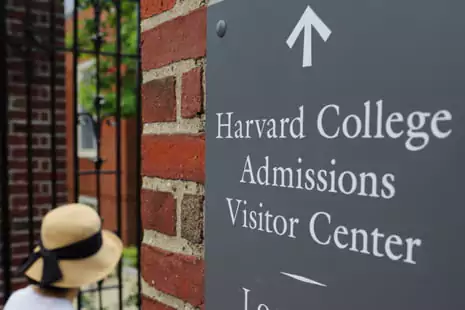In a country where equal opportunities and meritocracy are held high, Harvard University – one of the world’s most prestigious institutions – faces heavy criticism. Accusations target its admissions policy, with claims that it allegedly favors wealthy applicants over the economically disadvantaged. Such criticisms prompt a renewed debate over the inherent inequalities embedded in the American educational system.

✅ AI Essay Writer ✅ AI Detector ✅ Plagchecker ✅ Paraphraser
✅ Summarizer ✅ Citation Generator
Key Takeaways
- Harvard University’s admissions process is criticized for favoring wealthy applicants, potentially undermining its claims of merit-based selection.
- The wealth gap in education poses substantial challenges for economically disadvantaged students in accessing top-tier universities.
- There is a growing demand for increased transparency and fairness in the college admissions process.
Alleged Favoritism: Undermining Meritocracy?
For decades, Harvard University has been a symbol of academic excellence and opportunity. However, recent accusations suggest that not all opportunities are created equal. Critics argue that the university’s admissions process exhibits an implicit bias towards affluent applicants, thus potentially undermining the meritocratic principles the institution purports to uphold.
“Harvard’s reputation as a beacon of meritocracy is being challenged,” explains Dr. Sarah Thompson, an education policy analyst. “There are substantial concerns that wealth and social status may hold more sway in the admissions process than previously believed.”
The criticisms facing Harvard are emblematic of a broader issue within American education – the significant disparity between the opportunities available to the wealthy and those accessible to the economically disadvantaged. This wealth gap in education is not a new phenomenon, but the Harvard case brings it under the spotlight, fueling a public outcry for change.

According to a recent study by the Education Trust, students from low-income families are underrepresented at most elite colleges.
“Our research shows that at the top 101 colleges in the country, only 3% of students come from the bottom income quartile,” says researcher Eric McGhee. “This figure highlights the barriers many economically disadvantaged students face in accessing higher education.”
Demand for Greater Transparency and Fairness
Amidst the controversy, there is a growing demand for greater transparency and fairness in college admissions. Advocates argue that the process should be revamped to promote equal opportunities for all students, irrespective of their economic background.
As education expert Rebecca Geller suggests:
“It’s time to demystify the admissions process. Greater transparency and fairness can lead to an admissions system that truly reflects a student’s merit and potential, rather than their family’s financial status.”
Public Opinion: A Shift in Perspective?
While the controversy continues, there’s an observable shift in public opinion regarding the admissions processes at top-tier universities. Many argue that these institutions should bear the responsibility of fostering a truly merit-based system, encouraging diversity and inclusivity.
Reflecting on the current scenario, sociologist Dr. Maria Ramirez notes:
“People are no longer willing to accept the status quo. They demand change and expect these esteemed institutions to lead by example.”
The Harvard admissions controversy has ignited a broader conversation about wealth, privilege, and access to education in America. As this dialogue progresses, it is clear that the calls for greater transparency, fairness, and inclusivity within college admissions are louder than ever.
Follow us on Reddit for more insights and updates.





Comments (0)
Welcome to A*Help comments!
We’re all about debate and discussion at A*Help.
We value the diverse opinions of users, so you may find points of view that you don’t agree with. And that’s cool. However, there are certain things we’re not OK with: attempts to manipulate our data in any way, for example, or the posting of discriminative, offensive, hateful, or disparaging material.